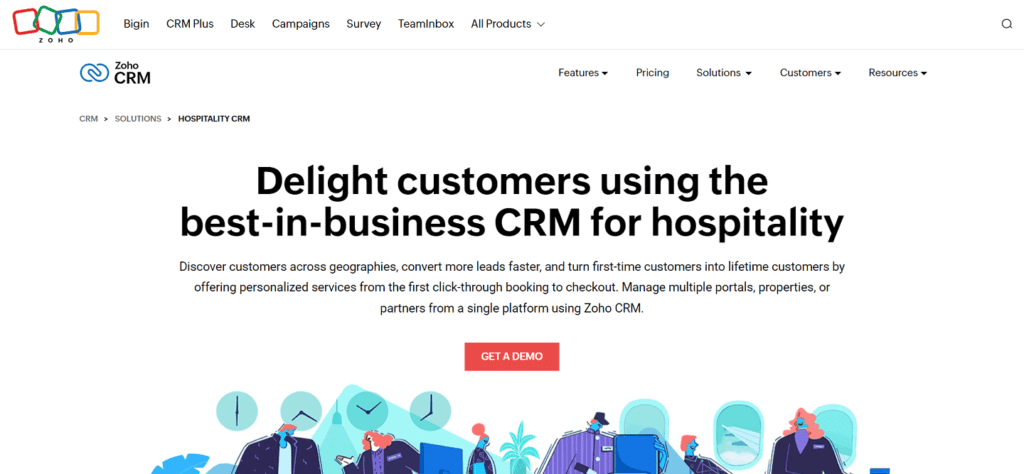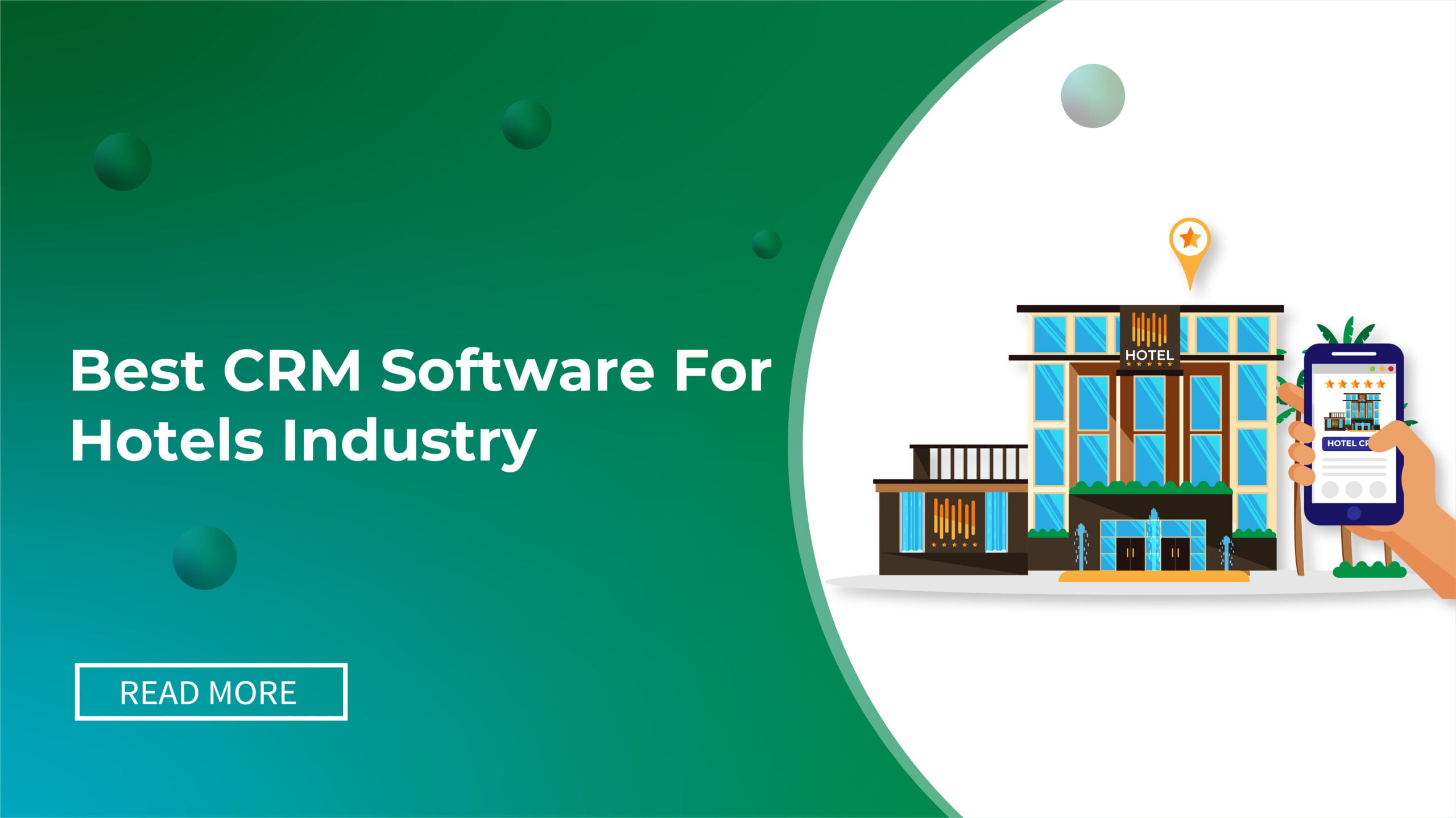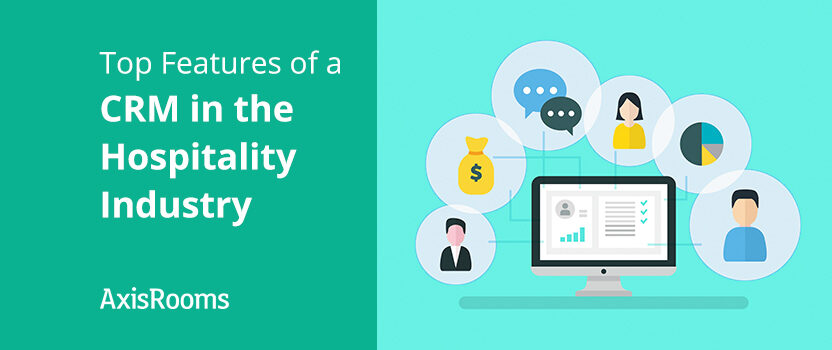Best CRM for hospitality industry takes center stage, as businesses strive to optimize operations and elevate guest satisfaction. In this fast-paced sector, having the right CRM system can make all the difference.
Exploring the nuances of CRM in the hospitality industry reveals the key features, integration possibilities, and data security measures that are crucial for success in this competitive landscape.
Understanding CRM in the Hospitality Industry: Best Crm For Hospitality Industry
Customer Relationship Management (CRM) in the hospitality industry refers to the strategies and technologies used by businesses to manage and analyze customer interactions and data throughout the customer lifecycle. In this context, CRM aims to improve customer service, enhance customer satisfaction, and drive customer loyalty.
Define CRM in the context of hospitality.
CRM in the hospitality industry involves the use of technology to streamline guest interactions, personalize customer experiences, and maintain long-lasting relationships with guests. It encompasses managing reservations, guest preferences, feedback, and marketing initiatives to create a seamless guest experience.
Explain the importance of CRM for hospitality businesses.
CRM is crucial for hospitality businesses as it allows them to understand guest preferences, anticipate needs, and tailor services to individual customers. By leveraging CRM systems, hotels, restaurants, and other establishments can improve guest satisfaction, increase repeat visits, and ultimately boost revenue.
Share examples of how CRM systems benefit the hospitality industry.
– Personalized guest communication and marketing campaigns
– Efficient reservation management and room assignment
– Data-driven decision-making for service enhancements
– Loyalty program management and rewards customization
Key Features to Look for in a CRM for Hospitality
When selecting a CRM system for the hospitality industry, there are several key features to consider to ensure optimal guest management and operational efficiency.
List essential features specific to the hospitality industry.
– Guest profile management with preferences and history
– Booking and reservation integration
– Feedback and review tracking
– Marketing automation for targeted campaigns
Discuss how automation can streamline processes in hospitality CRM.
Automation in CRM for hospitality can streamline check-in/out procedures, room assignments, personalized guest communications, and feedback collection. This reduces manual tasks, improves efficiency, and enhances the overall guest experience.
Compare customization options for different CRM systems.

Different CRM systems offer varying levels of customization to cater to the unique needs of hospitality businesses. Look for systems that allow personalized guest interactions, tailored loyalty programs, and flexible reporting capabilities.
Integration with Existing Systems
Integrating CRM systems with existing hospitality platforms is essential for seamless operations and data synchronization.
Explain the significance of CRM integration with existing hospitality systems.
By integrating CRM with property management systems, booking engines, and other tools, businesses can ensure a unified view of guest data, streamline operations, and provide consistent guest experiences across all touchpoints.
Provide examples of common integrations for a seamless operation.

– PMS integration for real-time room availability
– Channel manager integration for centralized reservations
– POS integration for guest billing and payment processing
– Feedback management integration for service improvements
Discuss challenges and solutions related to CRM integration in hospitality.
Challenges in CRM integration may include data migration, system compatibility, and training staff. Solutions involve thorough planning, testing, and ongoing support to ensure a successful integration process.
Data Security and Compliance
Ensuring data security and compliance with regulations such as GDPR is paramount when using CRM systems in the hospitality sector.
Explain the importance of data security in CRM for the hospitality sector.
Data security in CRM systems protects guest information, financial data, and business operations from cyber threats, unauthorized access, and data breaches. Implementing robust security measures is essential to maintain customer trust and comply with regulations.
Describe compliance requirements such as GDPR within CRM systems., Best crm for hospitality industry
GDPR compliance in CRM for hospitality involves obtaining consent for data collection, ensuring data accuracy, enabling data portability, and protecting data privacy. Businesses must adhere to GDPR guidelines to safeguard guest information and avoid penalties.
Share best practices for ensuring data security and compliance in CRM usage.
– Implement data encryption and access controls
– Conduct regular security audits and employee training
– Obtain guest consent for data processing and communication
– Maintain data retention policies and secure backups
Closing Summary

Embracing the best CRM for hospitality industry is not just about managing contacts; it’s about cultivating lasting relationships and delivering exceptional service. By leveraging advanced CRM tools tailored to the unique needs of the hospitality sector, businesses can stay ahead of the curve and create memorable guest experiences.
User Queries
What are some essential features to look for in a CRM for the hospitality industry?
Key features include guest profile management, booking and reservation tracking, loyalty program integration, and personalized communication tools.
How important is CRM integration with existing hospitality systems?
CRM integration ensures seamless data flow between different systems, enhancing operational efficiency and providing a unified view of guest interactions.
What data security measures should be in place for CRM usage in the hospitality sector?
Implementing encryption protocols, role-based access controls, regular data backups, and compliance with industry regulations like GDPR are essential for data security in CRM.
